C Concurrency in Action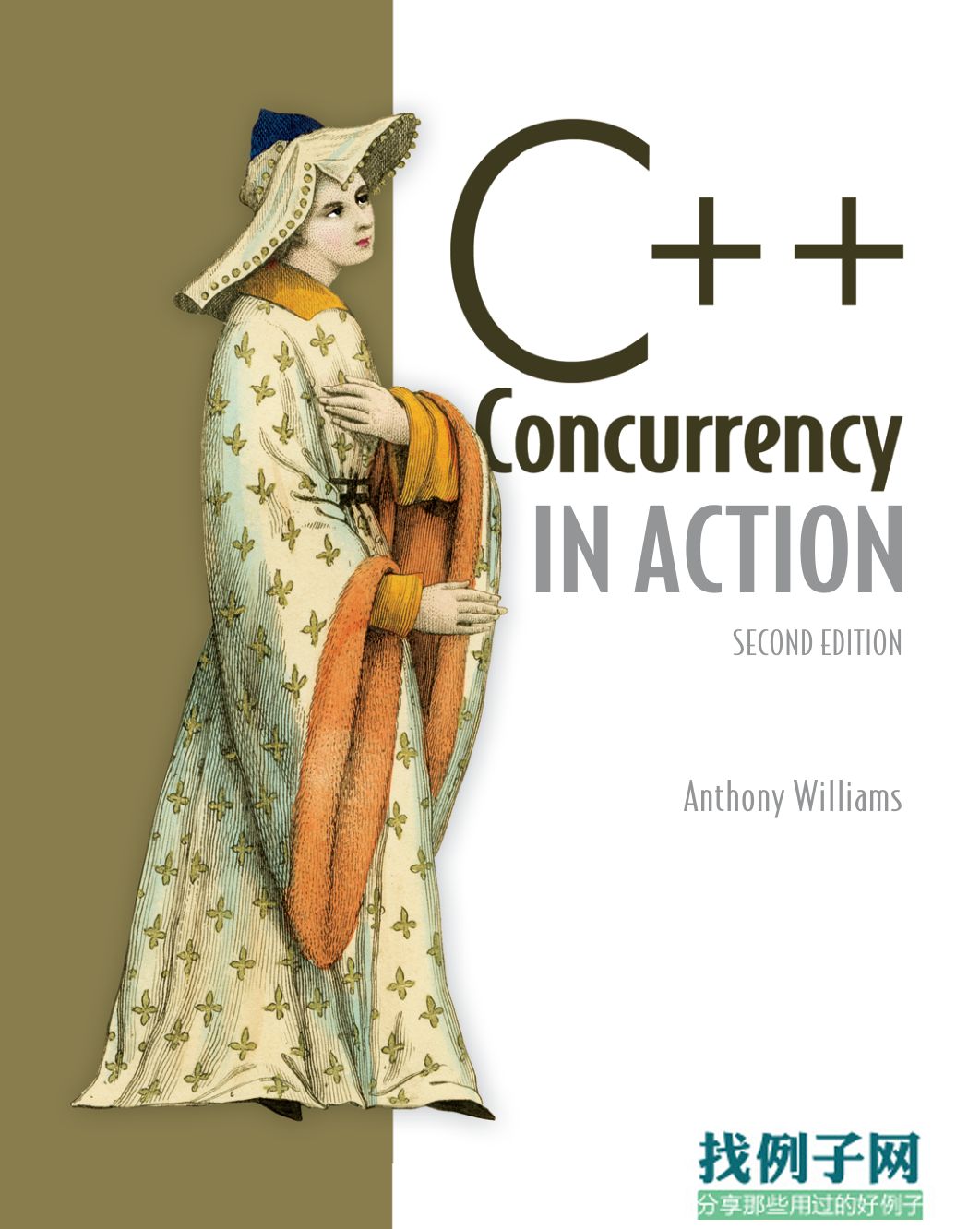
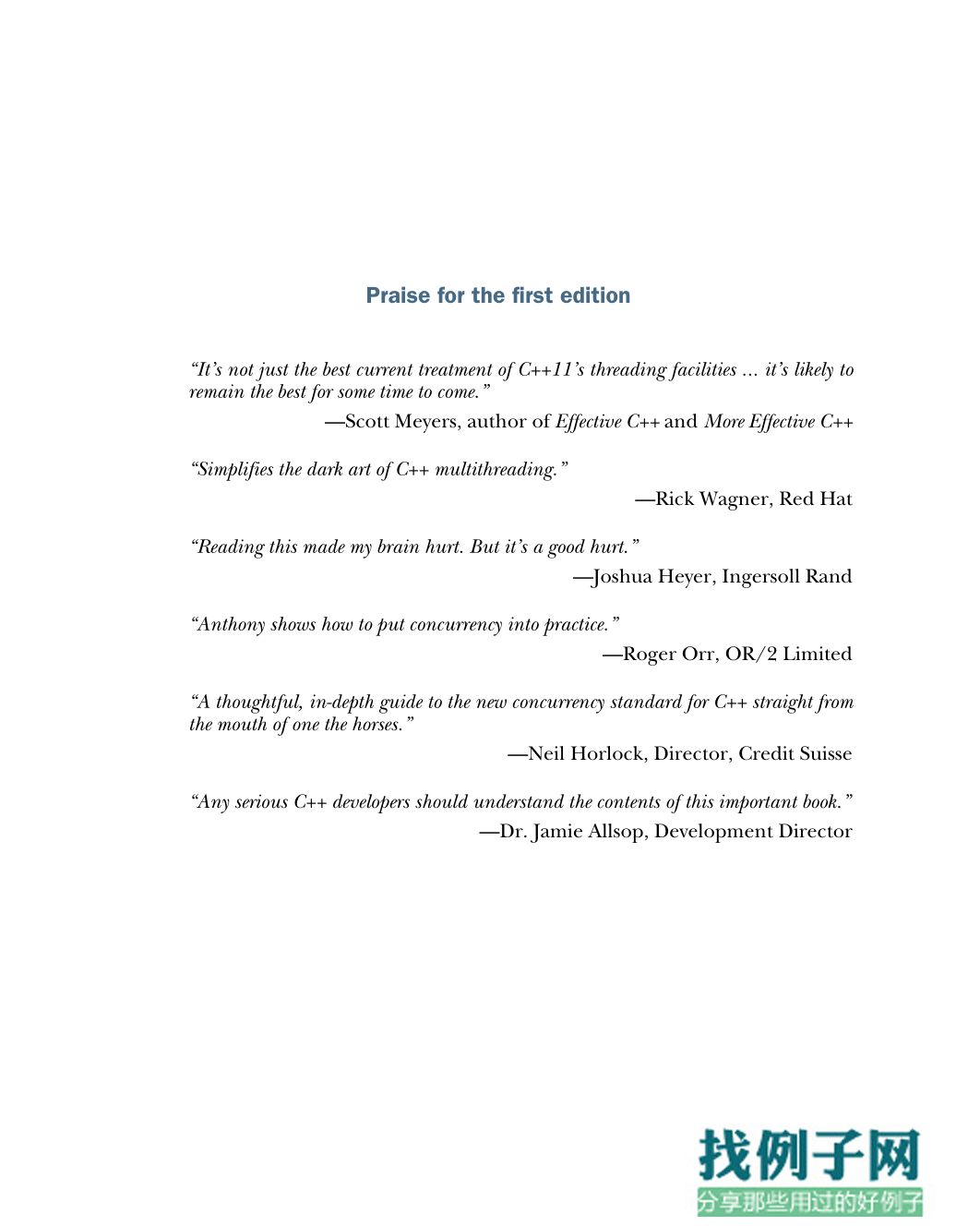

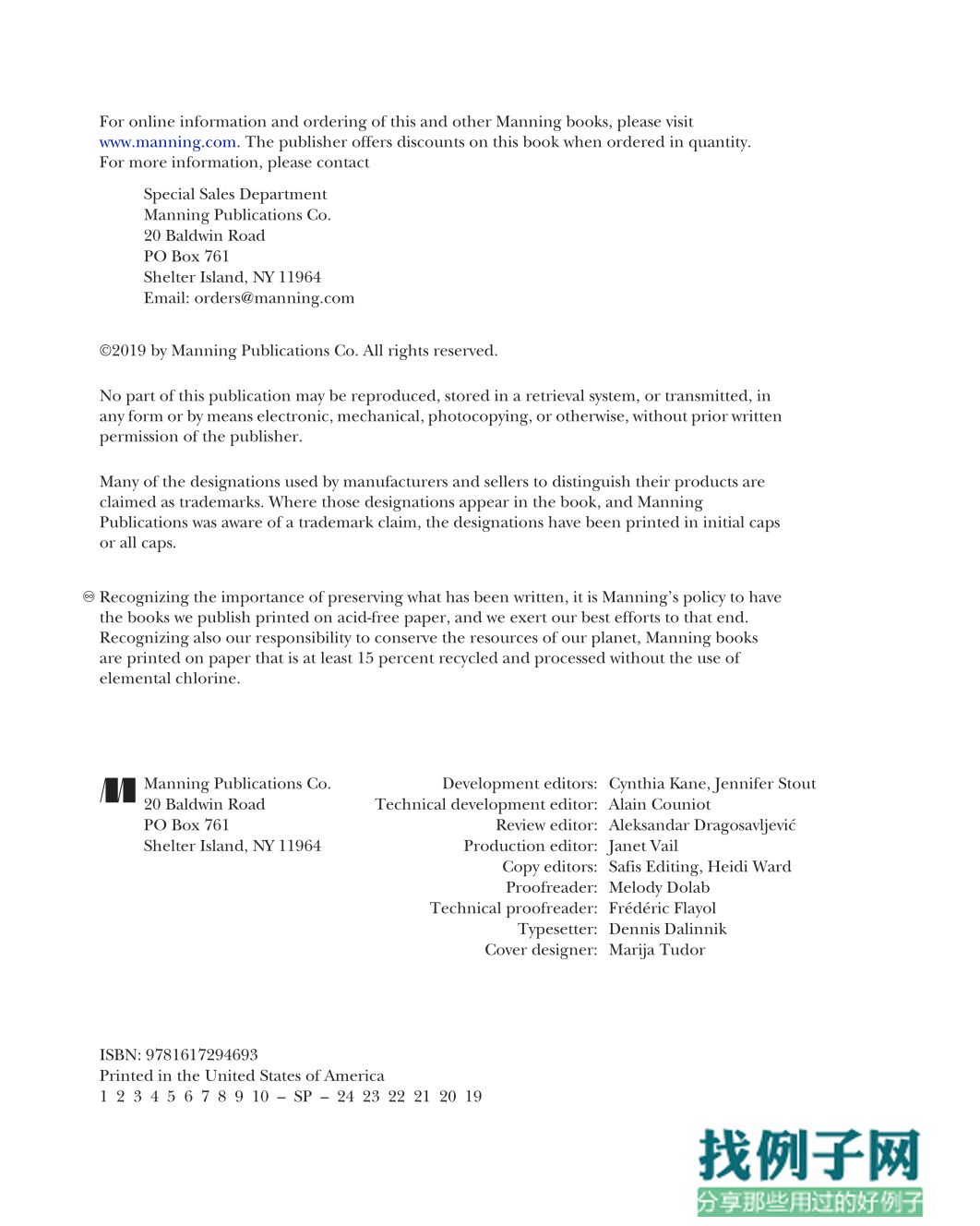
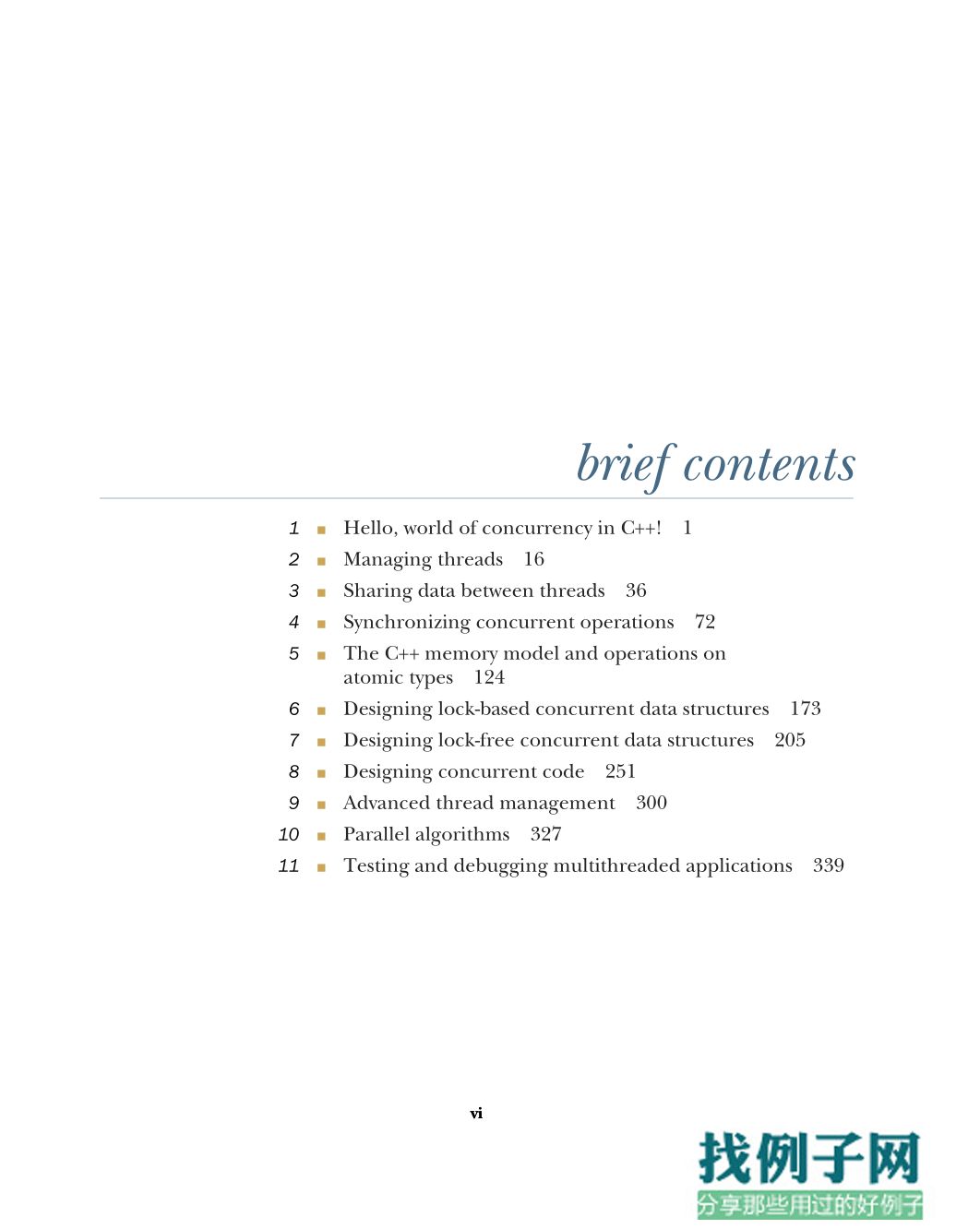

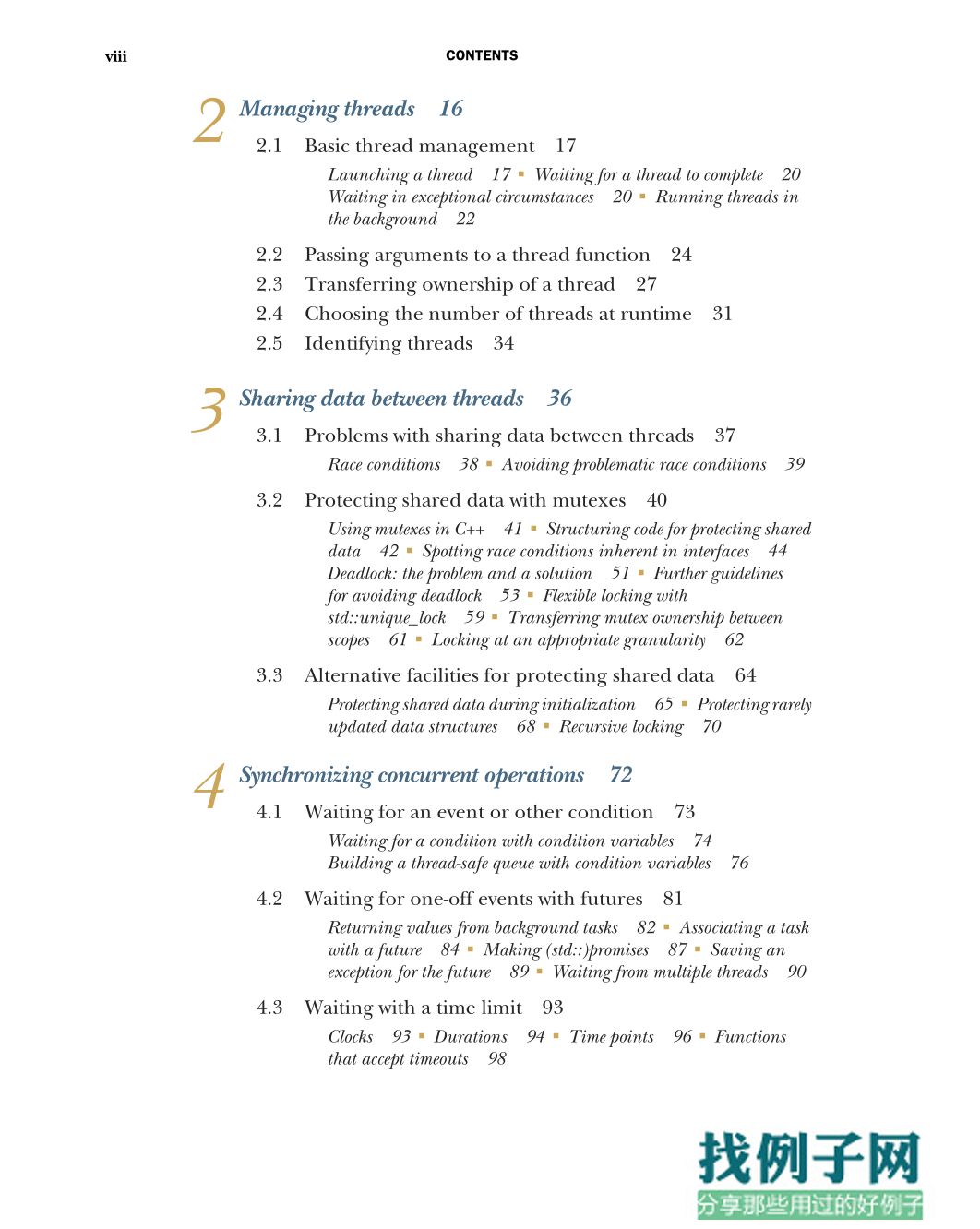
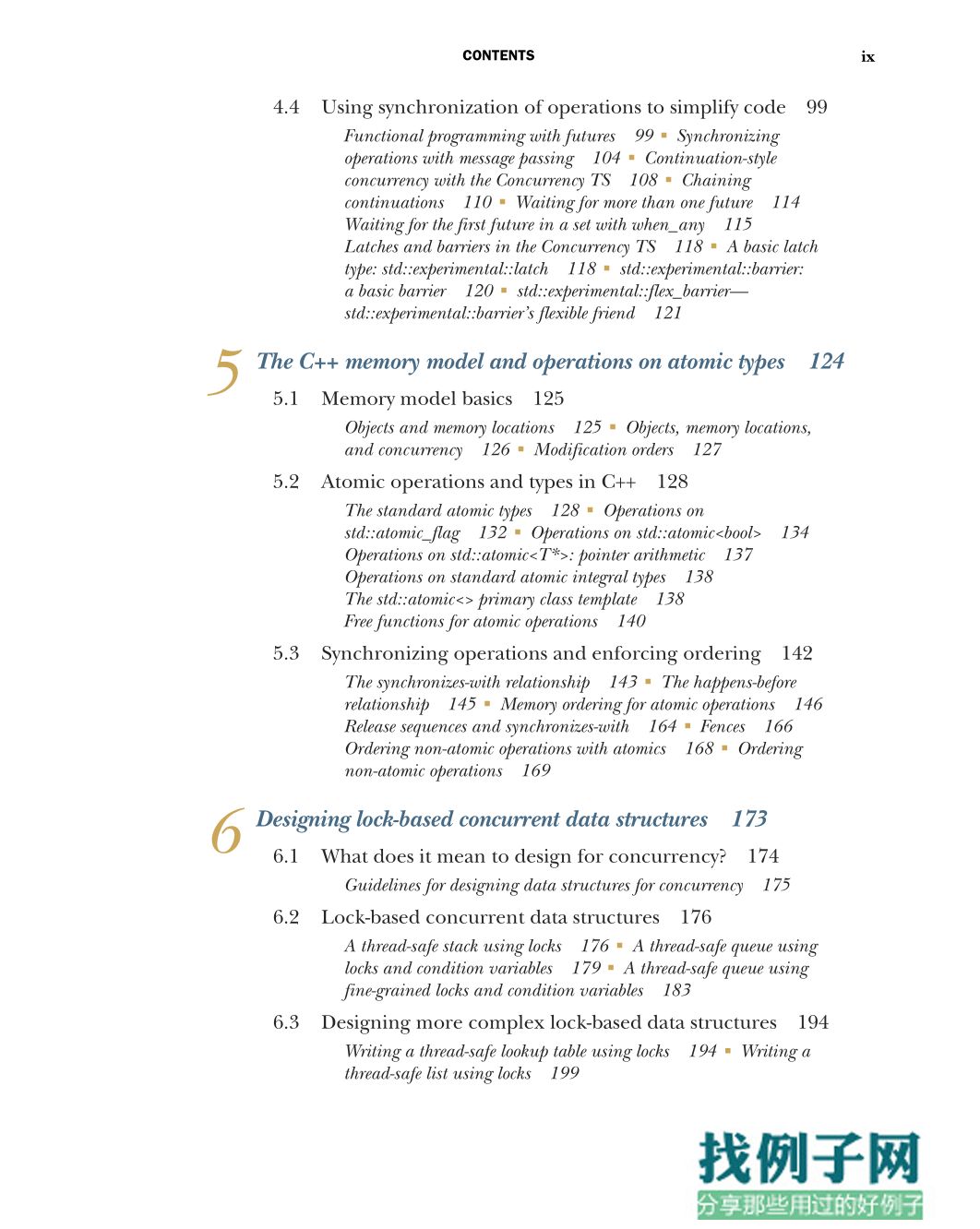
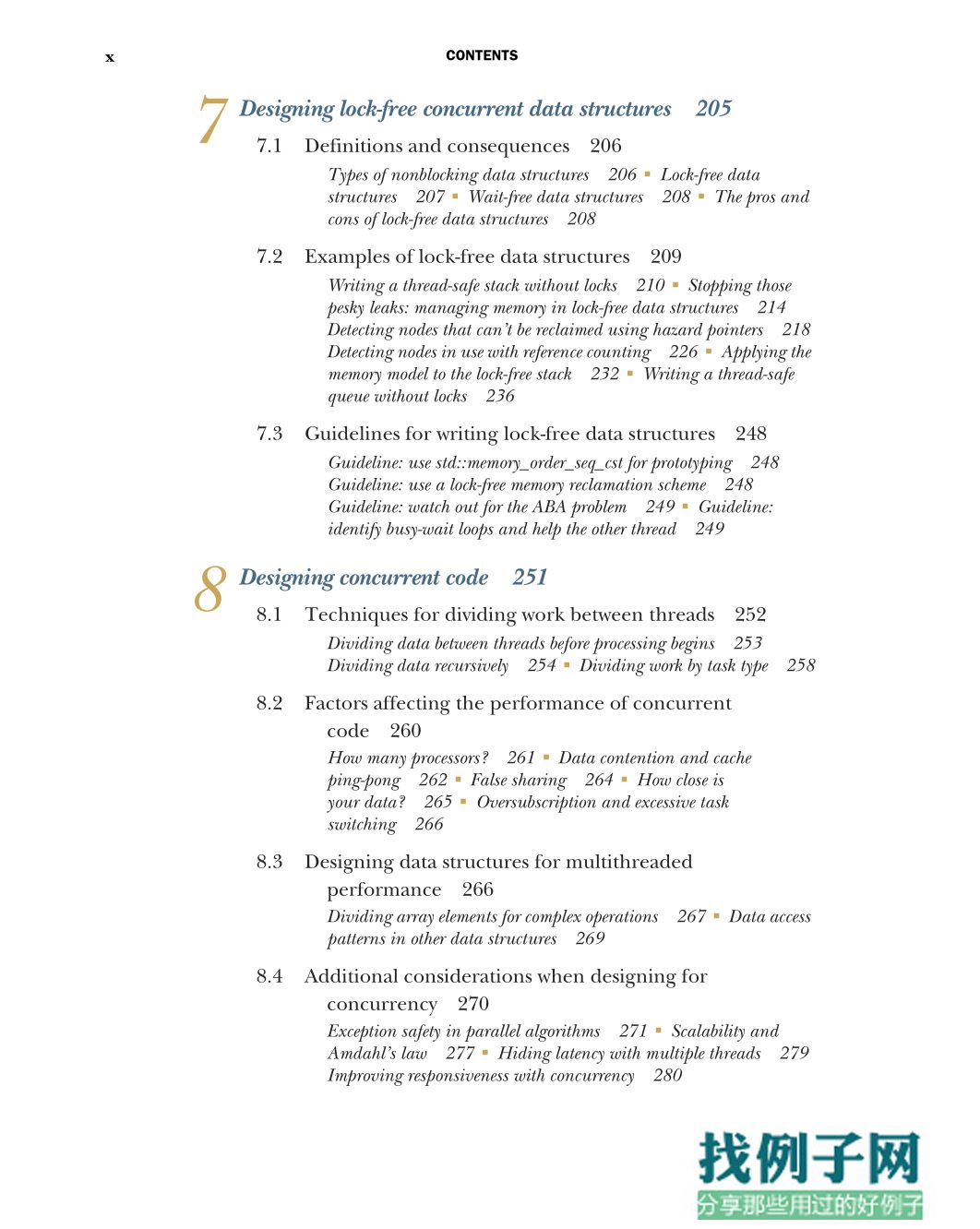
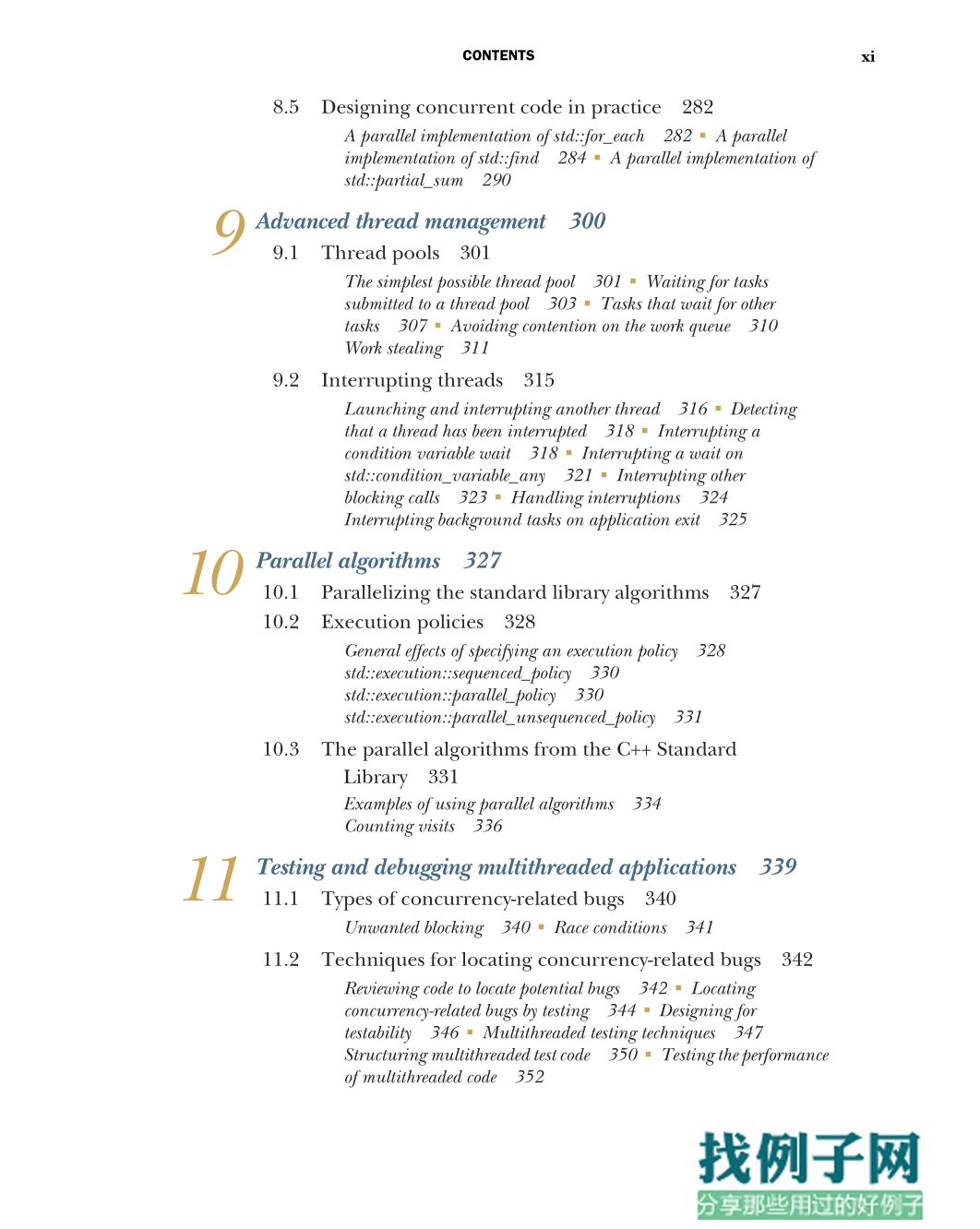

preface xiii
acknowledgments xv
about this book xvii
about the author xx
about the cover illustration xxi
1
Hello, world of concurrency in C ! 1
1.1 What is concurrency? 2
Concurrency in computer systems 2
■
Approaches to
concurrency 4
■
Concurrency vs. parallelism 6
1.2 Why use concurrency? 7
Using concurrency for separation of concerns 7
■
Using
concurrency for performance: task and data parallelism 8
When not to use concurrency 9
1.3 Concurrency and multithreading in C 10
History of multithreading in C 10
■
Concurrency support in the
C 11 standard 11
■
More support for concurrency and
parallelism in C 14 and C 17 12
■
Efficiency in the C
Thread Library 12
■
Platform-specific facilities 13
1.4 Getting started 13
Hello, Concurrent World 14
CONTENTS viii
2
Managing threads 16
2.1 Basic thread management 17
Launching a thread 17
■
Waiting for a thread to complete 20
Waiting in exceptional circumstances 20
■
Running threads in
the background 22
2.2 Passing arguments to a thread function 24
2.3 Transferring ownership of a thread 27
2.4 Choosing the number of threads at runtime 31
2.5 Identifying threads 34
3
Sharing data between threads 36
3.1 Problems with sharing data between threads 37
Race conditions 38
■
Avoiding problematic race conditions 39
3.2 Protecting shared data with mutexes 40
Using mutexes in C 41
■
Structuring code for protecting shared
data 42
■
Spotting race conditions inherent in interfaces 44
Deadlock: the problem and a solution 51
■
Further guidelines
for avoiding deadlock 53
■
Flexible locking with
std::unique_lock 59
■
Transferring mutex ownership between
scopes 61
■
Locking at an appropriate granularity 62
3.3 Alternative facilities for protecting shared data 64
Protecting shared data during initialization 65
■
Protecting rarely
updated data structures 68
■
Recursive locking 70
4
Synchronizing concurrent operations 72
4.1 Waiting for an event or other condition 73
Waiting for a condition with condition variables 74
Building a thread-safe queue with condition variables 76
4.2 Waiting for one-off events with futures 81
Returning values from background tasks 82
■
Associating a task
with a future 84
■
Making (std::)promises 87
■
Saving an
exception for the future 89
■
Waiting from multiple threads 90
4.3 Waiting with a time limit 93
Clocks 93
■
Durations 94
■
Time points 96
■
Functions
that accept timeouts 98
CONTENTS ix
4.4 Using synchronization of operations to simplify code 99
Functional programming with futures 99
■
Synchronizing
operations with message passing 104
■
Continuation-style
concurrency with the Concurrency TS 108
■
Chaining
continuations 110
■
Waiting for more than one future 114
Waiting for the first future in a set with when_any 115
Latches and barriers in the Concurrency TS 118
■
A basic latch
type: std::experimental::latch 118
■
std::experimental::barrier:
a basic barrier 120
■
std::experimental::flex_barrier—
std::experimental::barrier’s flexible friend 121
5
The C memory model and operations on atomic types 124
5.1 Memory model basics 125
Objects and memory locations 125
■
Objects, memory locations,
and concurrency 126
■
Modification orders 127
5.2 Atomic operations and types in C 128
The standard atomic types 128
■
Operations on
std::atomic_flag 132
■
Operations on std::atomic<bool> 134
Operations on std::atomic<T*>: pointer arithmetic 137
Operations on standard atomic integral types 138
The std::atomic<> primary class template 138
Free functions for atomic operations 140
5.3 Synchronizing operations and enforcing ordering 142
The synchronizes-with relationship 143
■
The happens-before
relationship 145
■
Memory ordering for atomic operations 146
Release sequences and synchronizes-with 164
■
Fences 166
Ordering non-atomic operations with atomics 168
■
Ordering
non-atomic operations 169
6
Designing lock-based concurrent data structures 173
6.1 What does it mean to design for concurrency? 174
Guidelines for designing data structures for concurrency 175
6.2 Lock-based concurrent data structures 176
A thread-safe stack using locks 176
■
A thread-safe queue using
locks and condition variables 179
■
A thread-safe queue using
fine-grained locks and condition variables 183
6.3 Designing more complex lock-based data structures 194
Writing a thread-safe lookup table using locks 194
■
Writing a
thread-safe list using locks 199
CONTENTS x
7
Designing lock-free concurrent data structures 205
7.1 Definitions and consequences 206
Types of nonblocking data structures 206
■
Lock-free data
structures 207
■
Wait-free data structures 208
■
The pros and
cons of lock-free data structures 208
7.2 Examples of lock-free data structures 209
Writing a thread-safe stack without locks 210
■
Stopping those
pesky leaks: managing memory in lock-free data structures 214
Detecting nodes that can’t be reclaimed using hazard pointers 218
Detecting nodes in use with reference counting 226
■
Applying the
memory model to the lock-free stack 232
■
Writing a thread-safe
queue without locks 236
7.3 Guidelines for writing lock-free data structures 248
Guideline: use std::memory_order_seq_cst for prototyping 248
Guideline: use a lock-free memory reclamation scheme 248
Guideline: watch out for the ABA problem 249
■
Guideline:
identify busy-wait loops and help the other thread 249
8
Designing concurrent code 251
8.1 Techniques for dividing work between threads 252
Dividing data between threads before processing begins 253
Dividing data recursively 254
■
Dividing work by task type 258
8.2 Factors affecting the performance of concurrent
code 260
How many processors? 261
■
Data contention and cache
ping-pong 262
■
False sharing 264
■
How close is
your data? 265
■
Oversubscription and excessive task
switching 266
8.3 Designing data structures for multithreaded
performance 266
Dividing array elements for complex operations 267
■
Data access
patterns in other data structures 269
8.4 Additional considerations when designing for
concurrency 270
Exception safety in parallel algorithms 271
■
Scalability and
Amdahl’s law 277
■
Hiding latency with multiple threads 279
Improving responsiveness with concurrency 280
CONTENTS xi
8.5 Designing concurrent code in practice 282
A parallel implementation of std::for_each 282
■
A parallel
implementation of std::find 284
■
A parallel implementation of
std::partial_sum 290
9
Advanced thread management 300
9.1 Thread pools 301
The simplest possible thread pool 301
■
Waiting for tasks
submitted to a thread pool 303
■
Tasks that wait for other
tasks 307
■
Avoiding contention on the work queue 310
Work stealing 311
9.2 Interrupting threads 315
Launching and interrupting another thread 316
■
Detecting
that a thread has been interrupted 318
■
Interrupting a
condition variable wait 318
■
Interrupting a wait on
std::condition_variable_any 321
■
Interrupting other
blocking calls 323
■
Handling interruptions 324
Interrupting background tasks on application exit 325
10
Parallel algorithms 327
10.1 Parallelizing the standard library algorithms 327
10.2 Execution policies 328
General effects of specifying an execution policy 328
std::execution::sequenced_policy 330
std::execution::parallel_policy 330
std::execution::parallel_unsequenced_policy 331
10.3 The parallel algorithms from the C Standard
Library 331
Examples of using parallel algorithms 334
Counting visits 336
11
Testing and debugging multithreaded applications 339
11.1 Types of concurrency-related bugs 340
Unwanted blocking 340
■
Race conditions 341
11.2 Techniques for locating concurrency-related bugs 342
Reviewing code to locate potential bugs 342
■
Locating
concurrency-related bugs by testing 344
■
Designing for
testability 346
■
Multithreaded testing techniques 347
Structuring multithreaded test code 350
■
Testing the performance
of multithreaded code 352
CONTENTS xii
appendix A Brief reference for some C 11 language features 354
appendix B Brief comparison of concurrency libraries 382
appendix C A message-passing framework and complete ATM example 384
appendix D C Thread Library reference 401
index 551



评论